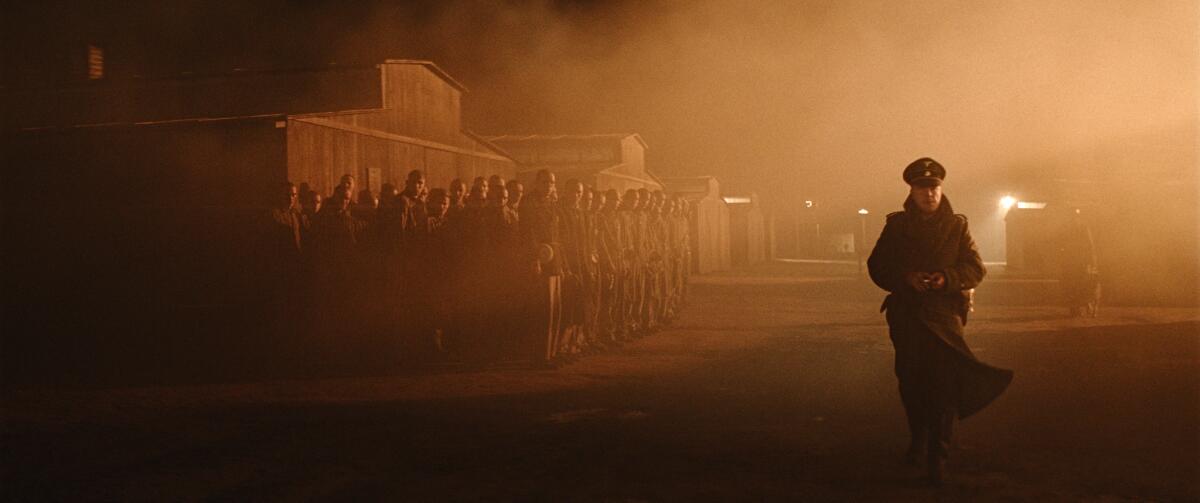Review: A daring escape and a quest to expose the Third Reich propel ‘The Auschwitz Report’

- Share via
The Times is committed to reviewing theatrical film releases during the COVID-19 pandemic. Because moviegoing carries risks during this time, we remind readers to follow health and safety guidelines as outlined by the Centers for Disease Control and Prevention and local health officials.
The immersive historical drama “The Auschwitz Report,” Slovakia’s submission for the 2020 international film Oscar, tells yet another true-life Holocaust-era tale of courage and daring with harrowing and deeply affecting results.
Director Peter Bebjak, who wrote the film’s tense, propulsive script with Jozef Pastéka and Tomás Bombík, vividly re-creates several weeks in April 1944 in which Slovak Jewish prisoners Alfred Wetzler (Noel Czuczor) and Walter Rosenberg (Peter Ondrejicka) plotted and executed a death-defying escape from the Auschwitz-Birkenau concentration camp.
The heroic pair’s goal was not only to free themselves from the clutches of the camp’s ruthless officers but to publicly expose the appallingly underreported, disbelieved and propagandized atrocities taking place under the Third Reich’s master plan.
The film’s first two acts follow Wetzler and Rosenberg as they disappear from sight and hide for days in a nightmarishly claustrophobic, plank-covered ditch awaiting their best chance to break out of the camp.
Meantime, increasingly frustrated and unhinged commanders subject Wetzler and Rosenberg’s desperate barracks-mates to heinous forms of abuse in an attempt to wring information from them about the missing prisoners. These moments are tough to watch but, sad to say, we’ve seen many worse examples on film of monstrous Nazi behavior — and its gruesome effects.
The movie’s tightly coiled pacing eases up a bit, but becomes no less involving, once Wetzler and Rosenberg exit Auschwitz and remarkably stay alive as they make their way through mountains and forests and toward the Polish-Slovak border, with help from resistance members they encounter en route.
Performances are gripping and lifelike all around, with Scottish actor John Hannah (“Sliding Doors”) appearing near the end as a Red Cross representative, whom Wetzler and Rosenberg (who changed his name to Rudolf Vrba after escaping Auschwitz) must convince, using detailed notes they’d kept, of the systematic horrors occurring at Hitler’s extermination camps.
The June 1944 publication of portions of the Vrba-Wetzler report, a 33-page, firsthand account of life and death at Auschwitz and Birkenau (it became part of a larger document known as the Auschwitz Protocols), is credited with saving more than 100,000 Hungarian Jews from deportation to Auschwitz. It all makes for an amazing and essential story.
Special kudos go to Martin Ziaran’s innovative, at times vertiginous and even upside-down camerawork, which lends a you-are-there feel to the film’s already viscerally unnerving action. It’s a master class in cinematography.
'The Auschwitz Report'
In German, English, Czech, Polish and Slovak with English subtitles
Not rated
Running time: 1 hour, 34 minutes
Playing: Laemmle Town Center 5, Encino; also on VOD
More to Read
Only good movies
Get the Indie Focus newsletter, Mark Olsen's weekly guide to the world of cinema.
You may occasionally receive promotional content from the Los Angeles Times.










